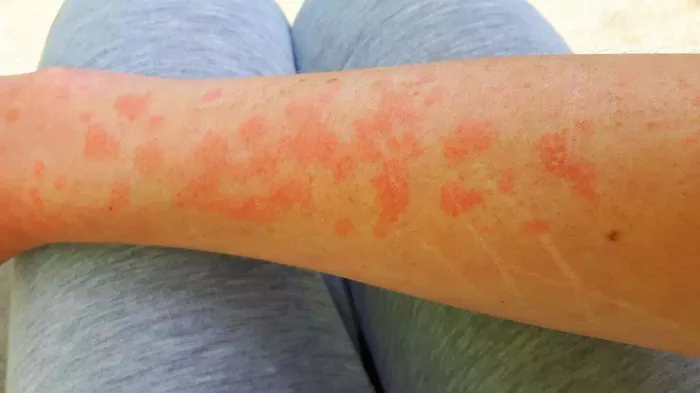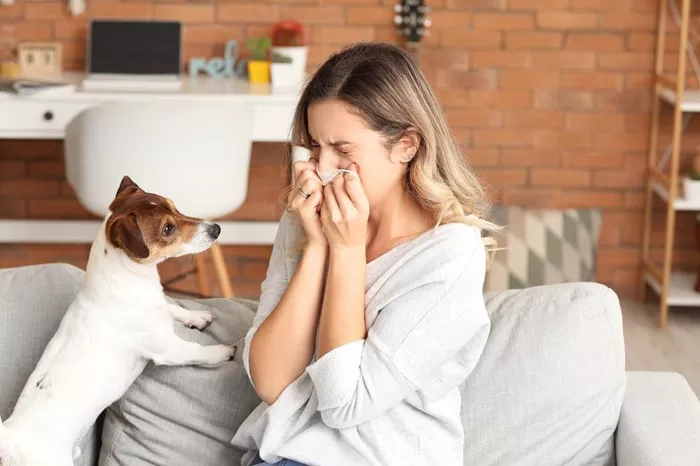Sun poisoning, despite its alarming name, does not mean you’ve been poisoned by the sun. It refers to a severe case of sunburn, which can involve not only superficial skin damage but also systemic symptoms like fever, chills, nausea, and dehydration. A sun poisoning rash can occur after prolonged and unprotected exposure to ultraviolet (UV) rays from the sun, leading to an intense inflammatory response in the skin. This article provides a comprehensive guide on how to recognize, treat, and prevent sun poisoning rash, ensuring your time spent outdoors remains safe and enjoyable.
Understanding Sun Poisoning Rash
Sun poisoning does not refer to actual poisoning. Instead, it’s a term commonly used to describe a severe sunburn that can be accompanied by a rash and other systemic symptoms. This condition is more formally known as photodermatitis. It can be more severe in individuals who have light skin, but no one is immune to the effects of excessive sun exposure.
Symptoms of Sun Poisoning
Recognizing the symptoms of sun poisoning is crucial for timely and effective treatment. Symptoms may include:
1. Red, swollen skin
2. Pain and blisters
3. Severe rash
4. Itching
5. Fever and chills
6. Nausea
7. Headache
8. Dizziness
9. Dehydration
Risk Factors for Sun Poisoning
Certain factors can increase your risk of developing sun poisoning. These include:
1. Having fair skin, light hair, and blue, green, or gray eyes
2. Exposure to the sun between 10 a.m. and 4 p.m. when UV rays are strongest
3. High altitudes and equatorial regions where sunlight is more intense
4. Certain medications that increase photosensitivity
5. A history of skin disorders or a family history of skin cancer
First Aid for Sun Poisoning
Immediate action can help mitigate the severity of sun poisoning. If you suspect that you or someone else has sun poisoning, follow these steps:
Get Out of the Sun
As soon as you notice signs of sunburn or any symptoms of sun poisoning, seek shade or go indoors. Further exposure will only worsen the condition and increase the risk of long-term damage.
Hydrate
Dehydration is a common complication of sun poisoning. It is essential to drink plenty of water to help your body recover from the heat and inflammation.
Cool the Skin
Apply cool, not cold, compresses to the affected areas. This can help reduce inflammation and alleviate pain. Avoid using ice directly on the sunburned skin as it can cause further damage.
Take Pain Relief
Over-the-counter (OTC) pain relievers, such as ibuprofen or acetaminophen, can help reduce inflammation, swelling, and pain. However, it’s important to use these according to the package instructions or a doctor’s advice.
Use Soothing Lotions
Aloe vera gel and lotions containing hydrocortisone are effective for reducing pain and swelling. These products can soothe the skin and provide temporary relief.
Medical Treatment for Sun Poisoning
While many cases of sun poisoning can be treated with home remedies, some situations require medical attention.
When to See a Doctor
You should consult a healthcare professional if you experience:
1. Severe pain and blistering
2. High fever (above 101°F)
3. Severe headaches, confusion, or fainting
4. Signs of dehydration such as dizziness, dry mouth, or reduced urination
5. Rapid pulse or rapid breathing
6. Extreme swelling of the skin
7. Yellowing of the skin or eyes
8. Persistent symptoms despite first aid measures
Treatment Options in Healthcare Settings
In more severe cases, treatment might include:
1. Intravenous (IV) hydration to treat dehydration
2. Prescription-strength pain relievers and anti-inflammatory medications
3. Antibiotic ointments or oral antibiotics for infected blisters
4. Corticosteroids in severe cases to reduce inflammation
Prevention of Sun Poisoning
Preventing sun poisoning is far more manageable than treating it. Effective preventive measures include:
Use Broad-Spectrum Sunscreen
Apply a broad-spectrum sunscreen with an SPF of 30 or higher. Reapply every two hours, or more often if swimming or sweating.
Wear Protective Clothing
Long-sleeved shirts, pants, and wide-brimmed hats can provide physical barriers against the sun’s rays. UV-blocking sunglasses are essential for protecting your eyes.
Avoid Peak Sun Hours
Try to stay out of the sun between 10 a.m. and 4 p.m., when UV rays are strongest. If you need to be outdoors during these hours, seek shade whenever possible.
Be Aware of Medication Side Effects
Some medications can increase your skin’s sensitivity to sunlight. Consult with your healthcare provider about the potential side effects of your medications.
Regular Skin Checks
Regularly check your skin for new moles, changes to existing moles, or any other changes that could indicate skin damage or skin cancer. Early detection is key to effective treatment.
Long-Term Skin Care After Sun Poisoning
After experiencing sun poisoning, your skin needs time to heal and may be more sensitive to sunlight. Long-term care strategies include:
1. Moisturize Your Skin
2. Use a gentle moisturizer to help restore the barrier function of your skin. Avoid products with harsh chemicals, fragrances, or dyes that can irritate the skin.
3. Continue Using Sunscreen
4. Protect your skin from further UV damage by continuing to use sunscreen whenever you are exposed to the sun.
Monitor for Skin Changes
Keep an eye on your skin for any long-term changes, such as the development of moles or unusual spots. Regular check-ups with a dermatologist are advisable if you have had severe sunburns or sun poisoning.
Conclusion
Sun poisoning is a serious condition that can cause significant discomfort and pose long-term health risks. Recognizing the symptoms and knowing how to respond quickly can help prevent more severe consequences. Implementing preventive measures and practicing responsible sun exposure are the best strategies to protect yourself and your loved ones from the dangers of sun poisoning. By staying informed and prepared, you can enjoy the sun safely and maintain healthy, resilient skin.
[inline_related_posts title=”You Might Be Interested In” title_align=”left” style=”list” number=”6″ align=”none” ids=”8543,8538,8471″ by=”categories” orderby=”rand” order=”DESC” hide_thumb=”no” thumb_right=”no” views=”no” date=”yes” grid_columns=”2″ post_type=”” tax=””]































